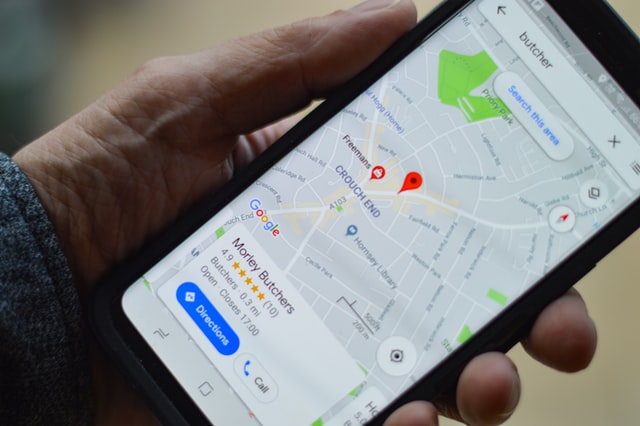These are the latest social media statistics from Brandwatch. Astonishing!
Surely you use social media, and so does nearly half of the world population. People spend over two hours a day on social media platforms. They have over 7 accounts on various social media platforms. And this isn’t even the peak of social media use!
Clearly, social media has a profound impact on how we live our lives and is here to stay, so how do we in the world of SEO make light of this reality? What is the relationship between SEO and social media?
SEO and social media are very much intertwined, but we must understand to what extent and how to utilize it. This post will take you on a journey through the following:
- SEO vs Social Media
- How does social media affect SEO?
- Why is social media important for SEO?
- Social media best practices for SEO
- Best social media platforms for SEO
Let’s get started!
SEO vs. Social Media
For many of you reading this there is no mystery what the difference is, but just as a precursor to the rest of the article let’s clarify the two:
- SEO – Search engine optimization refers to the process of optimizing a website (or single page) to improve its position in the search engine results pages (SERPs).
- Social media – Digital platforms that allow users to create and share content within their virtual social networks. The most popular social media platforms include Facebook, Twitter, and Instagram.
Nothing too abstract about these definitions, so let’s move on to what you are really looking for: does social media affect SEO?
Does social media affect SEO?
No. And yes. Let me explain!
Speaking from solely a technical standpoint, social media does not directly impact SEO. However, the indirect impact that social media has on SEO is quite impressive.
The social signals (links, likes, re-Tweets, etc) which come from social media do not hold any weight in the eyes of search engines. They do not have a direct impact on your SEO ranking.
So is that it, should we scrap social media as an SEO tool?
Not a chance! While social signals may not directly impact your ranking in SERPs, there is without a doubt a link between the two. To further understand the social media impact on SEO you need to read on a bit further.

Why is social media important for SEO?
While social signals may not directly impact your ranking on SERPs (although this is now starting to generate debate in the SEO community), the secondary impact of social media on SEO can be drastic.
Social media can drive traffic to your website which can help generate higher rankings in SERPs. Beyond just driving more traffic to your site, social media can aid SEO in other ways as well. Let’s take a look:
Visibility and traffic
Arguably the most obvious (and perhaps the most important) impact that social media has on SEO is that it creates more visibility for your product/service and drives more traffic to your website.
Every time you publish content on a social media platform you are exposing it to all of your followers. If the content is interesting enough your followers will either: (1) click the link to your website, (2) share it on their own profile, or (3) interact with the post itself.
All of these are beneficial when it comes to SEO. A user who clicks on the link to your website creates more traffic to your URL which is considered one of the major ranking factors by SERPs. More traffic generally means more credibility.
A user who shares the content on their social media profile creates an even larger network of people who will come into contact with your product/service which can lead to more traffic to your website.
And those users who interact with the post (i.e. comment, like, etc) not only create social signals (which is currently a topic of debate amongst SEOs), but also provide valuable information on them as a prospective customer.
At the end of the day, social media opens up many opportunities for generating lots of traffic to your website, which we all know is great for SEO!
Backlink opportunities
With more visibility and more traffic to your website, you begin to open the door for more social media backlinks. In the world of SEO, quality backlinks are arguably the most treasured item as they heavily influence rankings.
Being that this technique of acquiring backlinks from social media is passive (i.e. you aren’t reaching out personally to build backlinks), your content has to be of the highest quality to ensure that others will want to link back to it on their own accord.
Creating engaging content that can spread across social media platforms has been shown to have a direct correlation with the number of backlinks a URL produces. And if you need an example of how important backlinks are when it comes to SEO then our blog case study provides a prime example.
Increase brand awareness
Developing a strong brand is a key pillar to a successful business, and social media is one means of expanding your brand awareness.
Social media profiles allow businesses to create a relationship with their customers. Consistently sharing quality information goes a long way in developing brand recognition and trust.
As more people become aware of your brand and trust is developed from content shared on your social media pages, more people will start clicking through to your website on SERPs.
Take this into consideration: clicks from people who already trust your brand will generate a higher CTR and a longer time spent on your website (i.e. smaller bounce rate). Search engines will in turn reward you with higher rankings because you are proving to be a useful, trustworthy site.
Improvement in Local SEO
Social media and local SEO are connected in three ways: (1) NAP citations (name, address, phone number), (2) reviews, and (3) geotagging.
NAP citations are incredibly important when it comes to local SEO, and maintaining the same information across all platforms can greatly improve your chances of ranking for local searches. On top of that, many profiles offer the chance of including a small description that bots also use for ranking purposes, so make sure you utilize local search keywords in these sections.
It has also been shown that reviews can have a big impact on local SEO. Reviews show customer engagement which search engines like, while they can also utilize keywords found in reviews to help rank your page. Beyond that, search engines such as Google actually pull reviews from social media platforms like Facebook and use them in their GMB profile.
Finally, it has been shown that geotagging posts leads to higher engagement on sites like Instagram. Any sort of geotag related post on your social media profiles will aid in the successful construction of local SEO.

Developing relationships
They call it social media for a reason: it helps connect people and build relationships. Be sure and utilize that for your business!
As previously mentioned, building trusting relationships with your customers is vital. This in turn will lead them to promote your content/product/service amongst their network of friends which will allow your business to grow and gain more exposure.
As your brand grows and more people become aware of your product or service (and trust it!), important social media profiles (a.k.a. influencers) will begin to take note. Positive endorsements will lead to not only a larger audience, but greater trust and weight amongst search engines.
Other strategic partnerships can arise through social media as well which can be utilized for both parties involved. For example, an oatmeal company could generate a partnership with a milk company and both would benefit from positive social media endorsements as they aren’t competing against one another.
Learn more about your audience
Many social media platforms allow for comments and conversations to take place (i.e. the reason it is called social media). It is through these comments and conversations which SEOs can gain vital information.
Perhaps through your keyword research you thought you found a keyword that would help you gain more traffic. However, you are finding that this keyword isn’t actually drawing more traffic to your site.
As social media involves real people, it is a great place to find out what they truly want or what they are actually searching for. Via comments and conversations on your social media platforms, you can capture exactly what your customers are looking for. With this information you can then re-adjust your SEO efforts to target the correct keywords for your target audience.
Social media profiles get indexed too
Do not overlook the fact that your social media profiles can also be indexed. Generally associated with branded searches, it is not uncommon to see Facebook, Instagram, and Twitter profiles show up in the top spots on SERPs.
This is important because many potential customers feel more comfortable first engaging with a company’s social media profile before the official website. Social media profiles are generally more personalized and offer a good sense of the brand’s personality.
You also need to take into account that social media profiles that show up on SERPs can display ratings and reviews, while content published on social media profiles can help get it indexed faster depending on the amount users who engage with it.
Social media platforms are search engines themselves
While search engines like Google and Bing quickly come to mind when people want to do a search, social media platforms are also search engines themselves. Heavily dependent upon their own search functions and algorithms, social media platforms are often used for various searches by consumers as well.
If your profile is properly optimized, it would not be uncommon for a user to find your product or service after performing a search within the social media platform itself. This is just another reason why having your social media platforms optimized for SEO can greatly increase your visibility, CTR, and ultimately sales.
Social media best practices for SEO
While social media may not have a direct impact on SEO, we have shown the secondary impact social media efforts have on SEO. It would be hard to deny as an SEO the importance that social media efforts can have on improved rankings in SERPs.
However, many of us may not know exactly how to use social media for SEO. Don’t worry, this section will take a look at the best practices when it comes to social media and SEO.
Optimize your social media profiles
Think of your social media profiles as an extension of your website. You wouldn’t have a page of your website underdeveloped, utilizing a different SEO strategy, and poorly designed, meaning you shouldn’t let your social media profiles portray that image either.
Optimizing your social media profiles is one of the easiest things you can do, and arguably the most important part of utilizing social media for SEO. Here are a few key points to keep in mind:
- NAP (name, address, phone number) information should be consistent across all platforms, including your website.
- Include important keywords in your biography or “About” section, but ensure that it is written for human beings as they are your audience.
- Include a link to your website!
- Make sure your profile is interesting and engaging for your audience.
Use keywords
We mentioned using important keywords in your biography or “About” section, but don’t stop there. While you should never engage in keyword stuffing, you always need to keep relevant keywords in mind when interacting on your social media platforms.
Strategically using relevant keywords in social media posts can expand the reach of both your post and profile. Also be sure to incorporate relevant hashtags in social media posts that permit hashtags, while ‘guiding’ customers to write reviews that incorporate relevant keywords.

Post frequently
Make sure that you are posting frequently. The amount you post per day will depend on the social media platform, but don’t ever let your social media profiles lay dormant. There are a few reasons you want to post frequently:
- Keep your current followers engaged with new material
- Generate posts and content which will attract new followers
- Continual opportunity to use keywords you want to rank for
Useful & quality content
While you should post frequently, you should never post content just to fill a recommended quota. Filling your follower’s feeds with irrelevant or low-quality content can be highly detrimental to your success both in social media and SEO.
High-quality content that is useful to the reader will not only build trust around your brand but is more likely to receive social shares. We all know what happens when more people share your content…
Original content that engages the audience and creates value is now king. Get inside the brain of your followers and figure out what it is they want. What engages them. What they are most likely to share with their network.
Increase followers
Certainly easier said than done!
Growing your followers will ultimately help with the trickle-down SEO impact from social media as more people will be connecting with your brand and content. So how do you grow your followers?
One method is to buy followers, but that is a horrible idea as Google will know that your followers aren’t quality and will not help with SEO in any form. The obvious method is to grow your followers organically via quality content and engaging posts. This type of content will get shared by your current followers, and ultimately attract new followers.
Connect with your followers
Don’t let the number of followers you have just be a number! Connect with them, engage with them, interact with them…they are real people after all.
Considering these platforms are called social media, this is a rare chance for you to directly engage with your audience. Building a positive relationship and good rapport with your audience can really pay dividends in the future.
When you show that you truly care about their needs and complaints you are able to build strong relationships. Here are a few ways you can connect with your audience:
- Respond to comments
- Ask for their thoughts on your latest products or services
- Answer all questions they ask via your social media pages
- Utilize poll functions to learn more about your followers
Learn what your followers want
An extension of the previous point about connecting with your followers, social media is the ideal place to learn what your followers truly want from your product or service.
Vary the types of posts you publish to find out which type of posts resonate best with your audience, and learn exactly what they are after. Once you find the perfect formula for your followers then you can truly begin to dig into what your audience is looking for.
Do certain posts lead to lots of comments? Do others lead to lots of shares? Maybe some specific product posts drive conversations about quality or ways to improve?
Optimize content for social sharing
Getting users to share your content is arguably the biggest SEO benefit of social media. The more people that see your brand and engage with it will ultimately help grow organic traffic. But how do you get people to share your content?
Making your content share-worthy is certainly a science, but here are a few pointers:
- Add social sharing buttons to your blog or website
- Create high-quality (useful) content worth sharing!
- Use a call-to-action in social media posts to engage the audience
- Use creative visuals which are worthy of sharing
Build awareness of your brand
Social media is one of the best places to grow awareness of your brand, and you should constantly be presenting your product or service to your audience through your posts.
Without overwhelming your followers, put your brand front and center when posting on social media. Make sure your style and message is conveyed in all of your brand-related posts as frequently exposing your audience to your brand will be very beneficial in SERPs.
Your followers are more likely to perform brand-related searches if they are continuously exposed to your brand on social media, which in turn will ultimately help your SEO. Brand-related searches will obviously strengthen your brand, but also lead to higher rankings for non-brand related searches.
Use hashtags
Speak their language!
On many social media platforms, hashtags are their form of keywords. Hashtags help you appear in relevant searches and help index your post within the platform itself. This ultimately puts your content in front of users searching for that topic, which is very important when using social media for SEO.
Do a bit of research to find out what hashtags are popular for your content, and then always include them when you post content. Obviously, every social media platform is a bit different, and below we will discuss the best practices for the most popular and most relevant platforms.
So far we have taken a look at the social media impact on SEO, why social media is important for SEO, and the best practices for social media and SEO. Now let’s dive into various social media platforms and how to optimize them for SEO.
Top 9 social media platforms for SEO
Using social media for personal reasons and using social media for improving SEO can be quite different. The number of social media platforms is vast and ever-changing, so in this section we will highlight the top 9 social media platforms for SEO.

- What is it: Classified as a ‘microblogging’ platform, Twitter allows users to send and receive short posts called tweets. Tweets can contain up to 280 characters, as well as photos, videos, and links.
- Number of users: 353 million per month
- Demographics: 57.1% of users between 25-49 years of age; 70.4% male; US, Japan and India are the biggest users; 80% of Twitter users are affluent millennials
- Interesting notes: Tweets with GIFs get 55% more engagement
- Best practices:
- Ensure tweets are interesting and engaging (not spammy)
- Include your brand whenever possible in tweets
- Use hashtags that are popular, trending, or going viral
- Respond to comments and mentions
- Include links leading to your website when relevant
- Try and tweet between 3 to 5 times a day
- Retweet content that is relevant and add hashtags
Easy SEO Tip for Twitter
Include your website URL in the description as other websites pull their content from Twitter and thus will generate an easy link.
- What is it: A social networking site that allows users to create a profile and connect with other users, post comments, share photos and videos, link to news or articles, live chat and much more.
- Number of users: 2.45 billion per month (largest in the world)
- Demographics: 57% of users between 18-34 years of age; 57% male
- Interesting notes: 38 minutes spent per day by the average user
- Best practices:
- Ensure the ‘About’ section is up-to-date and uses relevant keywords
- Customize tabs to make the user experience easier to navigate
- Create high-quality content that engages your audience (remember, you want interaction and shares!)
- Build links back to your website and landing pages
- Interact with your followers/clients
- Ask for reviews from followers
- High-quality visuals can go a long way with your audience
- Post quality content 1-2 times a week
Easy SEO Tip for Facebook
Claim your vanity URL and customize it to match your company name. You will build brand recognition and visibility as well as enjoy an SEO boost.
YouTube
- What is it: A video-sharing platform that allows users to upload, view, rate, share, subscribe, and comment on videos. YouTube is a subsidiary of Google.
- Number of users: 2 billion per month
- Demographics: 16% of user traffic from USA; 50% of users are female, 90% of 18 to 44-year-old American internet users watch YouTube videos
- Interesting notes: Second largest search engine in the world behind Google; most downloaded free app in the Apple store
- Best practices:
- Create interesting videos that attract and retain the searcher
- Use target keyword as the name of your video file
- Video title should also have your target keyword
- Add a category to your video in “Advanced Settings”
- Ensure the thumbnail image is enticing to searchers to improve CTR
- Promote your videos on your other social media platforms
Easy SEO Tip for YouTube
Add relevant keyword hashtags to your video to help users find it. Make sure they are long-tail keywords! #SEOTipsForYouTube
- What is it: A social media platform owned by Facebook which is designed for sharing photos and videos. Users can create a profile, upload and view photos and videos, and comment and like posts.
- Number of users: 1 billion per month
- Demographics: 63% of users between 18-34 years of age; 51% of users are women; 25+ million business accounts
- Interesting notes: users spend an average of 28 minutes per day on the platform; Instagram is the second-most downloaded free app in the Apple store; 60% of users say they discover new products on Instagram
- Best practices:
- Create amazing content that stands out and engages users
- Make your business profile public
- Include target keyword in your display name, secondary keyword in bio
- Utilize Alt Text in your posts
- Hashtags are vital and create 12.6% more engagement
- Use relevant keywords in captions
Easy SEO Tip for Instagram
Add a location to your posts as posts with a location experience 79% more engagement.
- What is it: A social network where ideas are represented by a Pin, which is an image that is saved to a user’s pinboard. Pins can contain written content along with links to external websites.
- Number of users: 335 million per month
- Demographics: 41% of users between 25-34 years of age; 70% of users are female
- Best practices:
- Publish pins consistently (if you can only publish two a day, then stay consistent with two a day)
- Creative, original content and photos are key on Pinterest
- Convert content from your website into infographics for Pinterest
- Always include relevant keywords
- Always add a link to the relevant webpage
- Ideal image size is 600×900 pixels (2:3 ratio)
- Utilize relevant keywords in the description and hashtags
- Follow other accounts and add pins to your boards
- Publish video pins if you are capable of creating quality videos
Easy SEO Tip for Pinterest
Pin photos from your website instead of uploading them, and ensure you add a 50-word description to make them more SEO-friendly.
- What is it: The largest professional network online which is used by both those seeking employment and employers. Users can create a profile and display their resume, search for jobs or internships, connect with other professionals, and post/read articles.
- Number of users: 675 million per month
- Demographics: 61% of users between 25-34 years of age; 57% of users are men, 30 million companies are on LinkedIn
- Interesting notes: 80% of B2B leads come from LinkedIn
- Best practices:
- Ensure keywords used in your profile are popular on LinkedIn
- Build smart connections (quality over quantity)
- Increase the number of recommendations, skills, and endorsements
- Post varying types of content (images, blog posts, videos, etc) to see what resonates with your connections
- Continually engage with your audience to build lasting relationships
- Join relevant groups and engage with them
- Add links to your LinkedIn profile everywhere (i.e. in your email signature)
Easy SEO Tip for LinkedIn
Ensure that uploaded images (including profile images) include a relevant title. Google searches for and indexes images, so by adding a relevant image title you are fine-tuning your SEO efforts.
Flickr
- What is it: It is considered the best online photo management and hosting platform in the world. The platform allows users to both share photos and explore photos of other users. It is popular amongst photographers, bloggers, and artists.
- Number of users: 90 million per month
- Interesting notes: 1 million photos are shared on average per day
- Best practices:
- Only upload high quality, interesting images
- Add a watermark to each photo with the company logo
- Use relevant keywords for each image that will attract the clientele you want
- Insert captivating titles and take advantage of tags
Easy SEO Tip for Flickr
Include hyperlinks back to your website in the image description. Any Flickr link pointed back to your website is a plus.
Quora
- What is it: An online question-and-answer website where questions are asked, answered, followed, and edited by users.
- Number of users: 300 million per month
- Demographics: 32.5% of users between 25-34 years of age; 57% of users are male; 62% of users come from the US, India and UK
- Interesting notes: Many Quora pages rank in Google because essentially what Quora does is answer user questions, which is what Google wants
- Best practices:
- Link to your URL in profile description
- Start your own blog on Quora
- Remain active in the community and answer customer questions
- Add links to your website when commenting, but only when relevant and not spammy
- Build trust in the community as you are dealing with real human beings after all
Easy SEO Tip for Quora
If you come across a broken link in a response and you offer content that provides the answer, then contact the source where the broken link is located and suggest that they use your link instead.
Tumblr
- What is it: A micro-blogging and social media platform that allows users to share text, photos, videos, music, quotes, links, and more.
- Number of users: 488 million blog accounts
- Demographics: 69% of users are Millenials; 33% of traffic comes from the US
- Interesting notes: Acquired by Yahoo in 2013; Tumblr links are dofollow
- Best practices:
- Customize the title tags of each post
- Get to know what your audience wants so that you produce material they want to reblog
- Use hashtags to help searchers find your content
Easy SEO Tip for Tumblr
Create custom URLs for each post with a relevant keyword

Conclusion
Well there you have it, a breakdown of just how social media affects SEO. It may not be glamorous, it may not be cookie-cutter-easy, but if you correctly implement social media strategies then it can have a profound and lasting impact on SEO, especially at the current moment considering the coronavirus impact on SEO.
While every business may not have the resources or the time to fully jump into social media, we highly advise that you start with one platform which you know your customer base uses. From there you can slowly build your following and implement our social media strategies for SEO to ensure that you too reap the fruits of the social media community.
Keep in mind that one retweet or one share can make all the difference…
You could also be interested in our latest post, Changes in the documentation for Google Hotel’s Sustainability policies.
0

